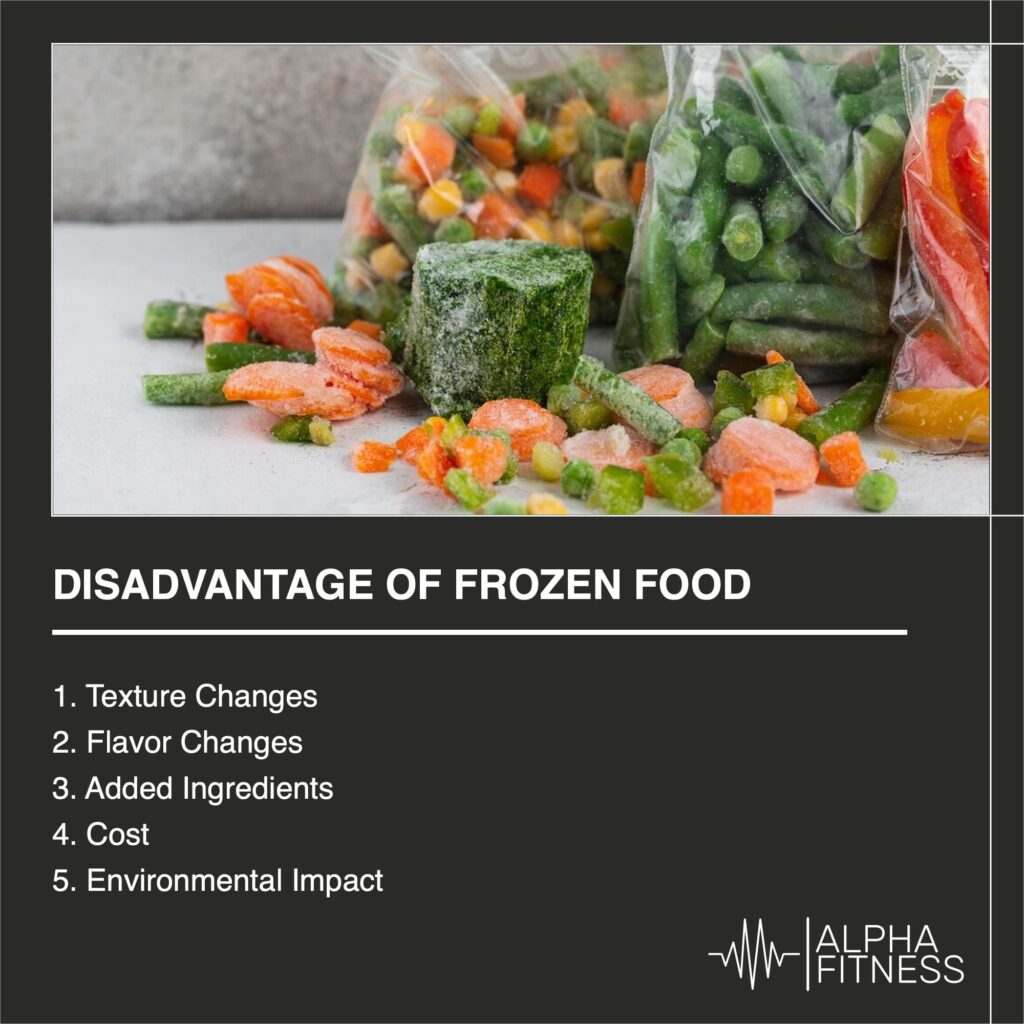
Frozen foods can experience some nutrient loss during the freezing process. While freezing helps preserve many nutrients, such as vitamins and minerals, it may not retain them as effectively as fresh foods. Additionally, extended storage times in the freezer can further degrade the nutrient content of the food.
Certainly, let’s explore the disadvantages of frozen food in more detail:
Texture Changes: Freezing and thawing can lead to changes in the texture of certain foods. For example, vegetables may become mushy, and meats may lose some of their original texture. This can affect the overall quality and mouthfeel of the food, making it less appealing.
Flavor Changes: Freezing can also affect the flavor of some foods. Some people find that frozen fruits and vegetables, in particular, may taste slightly different from their fresh counterparts. Additionally, odors from other foods in the freezer can be absorbed, potentially affecting the taste of nearby items.
Added Ingredients: Many frozen foods, especially pre-packaged frozen meals, can contain added preservatives, sodium, or other ingredients to enhance flavor and extend shelf life. These additives may not align with a healthy diet, and they can be a concern for individuals with dietary restrictions or food allergies.
Cost: While frozen foods offer convenience, they are not always the most cost-effective option. Pre-packaged frozen meals, in particular, can be more expensive than cooking from scratch or using fresh ingredients.
Environmental Impact: The production and packaging of frozen foods can have a greater environmental impact compared to fresh foods. The energy required for freezing and storage, as well as the packaging materials, can contribute to a larger carbon footprint.
Limited Variety: The selection of frozen foods may be limited compared to fresh options. Specialty or seasonal items may not be available in frozen form, which can limit your culinary choices.
Storage Space: Storing frozen foods requires freezer space, and not all households have ample freezer capacity. This can be a significant limitation if you want to stock up on frozen items or if you have a smaller freezer.
Safety Concerns: While freezing is an effective method of food preservation, frozen foods can become unsafe to eat if they thaw and refreeze multiple times. This can occur during transportation, power outages, or mishandling, potentially leading to foodborne illnesses.
Below is a list of useful links:
- Green, leafy vegetables usually fight dementia
- How can vitamin B consumption reduce mononucleosis?
- What causes abdominal pain?
- How legumes help cure shingles
- Ways to overcome migraine
It’s important to strike a balance between the convenience of frozen foods and their disadvantages. While they can be a helpful addition to your diet, it’s often best to prioritize fresh, whole foods whenever possible and use frozen options as a complement or backup. Pay attention to the nutritional labels and ingredient lists on frozen products to make informed choices that align with your dietary needs and preferences.



